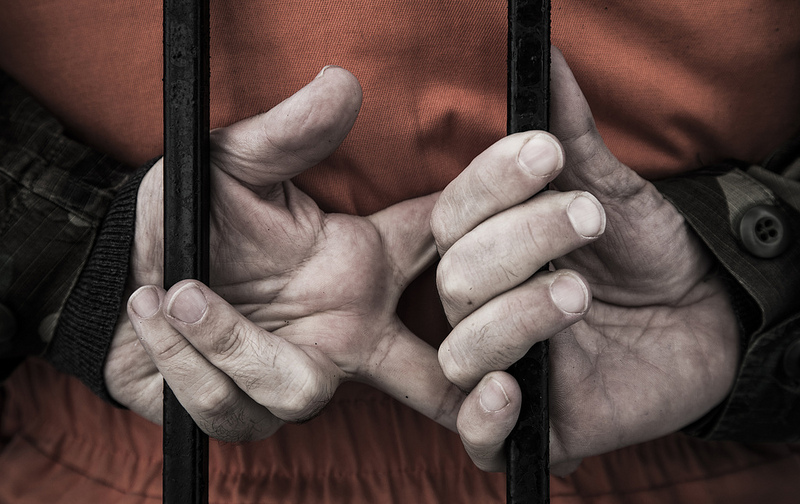When it comes to torture, it’s hard not to look good compared to the U.S. authorities who, among other things, subjected an Algerian prisoner to ice-water baths and 66 hours of standing sleep deprivation … before discovering he was not the person they thought he was.
OK, so there were a few screw-ups in the U.S. torture program. Stuff happens. No big deal. Here’s how Dick Cheney summed it up last week: “I would do it again in a minute.”
In light of the utterly barbaric behaviour documented in the U.S. Senate report on torture — behaviour heartily defended by “war on terror” enthusiasts like Cheney — it was perhaps a relief that the Harper government responded by noting that Canada doesn’t torture people.
“Canada doesn’t torture anyone. Period. Period,” said Foreign Affairs Minister John Baird.
But Baird declined to answer a question about whether Canadian authorities have used information obtained by others through torture.
There’s a reason Baird ducked that question: A truthful answer would have acknowledged that the Harper government has opened the door to Canadian complicity in torture. It issued a directive allowing Canadian officials to share intelligence with foreign governments in some situations, even when this could lead to torture or to the receipt of information extracted under torture.
But like so many other disgraceful things that this government has done, the Harper crew issued this directive secretly; it only came to light through the access to information law.
Rather than simply prohibiting Canadian government agencies from sharing torture-tainted information, the Harper government’s directive simply requires approval from higher-ups, specifying that the matter should be referred to the appropriate deputy minister or agency head.
The directive defies the central recommendation made by Justice Dennis O’Connor, who headed the inquiry into the case of Maher Arar, a Syrian-born Canadian who ended up tortured in Syria after the RCMP sent U.S. authorities false information linking him to al Qaida.
In his powerful report, Justice O’Connor found that the RCMP’s false information likely had contributed to Arar’s year-long ordeal in Syria, and recommended Canadian agencies never send foreign authorities information that could lead to torture.
That recommendation led the RCMP to revamp their information-sharing procedures.
O’Connor’s report went further and condemned torture under any circumstances, noting that the prohibition against torture in international law is so fundamental it has acquired the status of jus cogens — a body of “higher law” that overrides all other laws or government practices.
Indeed, the response to the Arar ordeal was enough to renew Canadians’ faith that our system works. Once Arar’s plight became known, there was a huge public outcry, prompting the public inquiry and Justice O’Connor’s tough recommendations, which led to new RCMP rules. Arar also won $10 million in compensation from Canada and an apology from Stephen Harper.
Secretly, however, the Harper government was up to something very different — essentially eviscerating O’Connor’s central recommendation to prevent future Canadian complicity in torture.
Starting in January 2009, Canada’s Public Safety Department quietly began working on the federal directive, creating an approval process for sharing potentially torture-tainted information.
Strikingly, it seems that there is nothing in the federal directive to prevent a repeat of the RCMP behaviour that led to Maher Arar’s ordeal. The only real difference now would be that senior Canadian officials would have to sign off on it — a safeguard that offers little comfort, given the tendency of senior officials to fall in line with government policy.
The horrific details documented in the U.S. Senate report have produced a fierce backlash that has put new wind in the sails of America’s pro-torture, tough-on-terror crowd, as they make the case that torture can sometimes be justified.
Particularly popular is the “ticking time bomb” justification advanced by Cheney and U.S. Supreme Court Justice Antonin Scalia: What if a suspect knew the location of a bomb that could kill thousands of people?
The argument sounds compelling — but where would it lead us? Would Cheney and Justice Scalia — and whatever Canadian allies they have — think it was OK, for instance, to torture a child in order to make her parents reveal where a ticking time bomb was hidden?
And do we really want Canadian operatives making decisions about complicity in any of this — with the only safeguard being the approval of a senior Canadian official, operating in secret?
Winner of a National Newspaper Award, Linda McQuaig has been a reporter for the Globe and Mail, a columnist for the National Post and the Toronto Star and author of seven bestsellers, including Shooting the Hippo: Death by Deficit and other Canadian Myths and It’s the Crude, Dude: War, Big Oil and the Fight for the Planet. Her most recent book (co-written with Neil Brooks) is The Trouble with Billionaires: How the Super-Rich Hijacked the World, and How We Can Take It Back.
This article is reprinted with permission from iPolitics ![]()
Photo: Justin Norman/flickr



